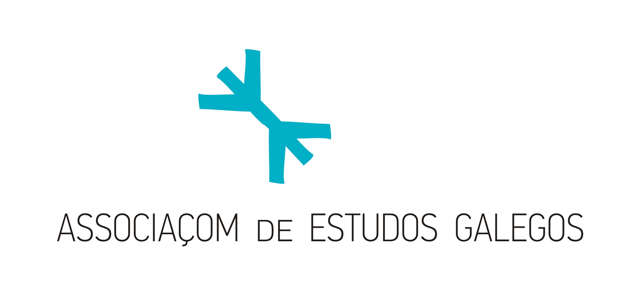
"Qual política lingüística? Desafios glotopolíticos contemporâneos" de Xoán Lagares
Diego Bernal
Há palavras que assustam. Com certeza, glotopolítica é um vocábulo que se nom der medo deve gerar certo afastamento ou rejeiçom em muitas pessoas. Porém, o termo glotopolítica é muito mais próximo de nós do que à partida pode parecer.
O uso feminino de vozes que originalmente careciam de expressom mórfica de género como presidenta; a crítica de instituiçons autoritárias e discriminatórias, como as Academias, aos movimentos feministas pola defesa da linguagem inclusiva; ou os preconceitos lingüísticos contra pessoas por falarem línguas minorizadas ou variedades estigmatizadas socialmente som alguns dos debates glotopolíticos do quotidiano que o professor Xoán Lagares inclui no ensaio recentemente editado Qual política linguística? Desafios glotopolíticos contemporâneos.
Desde a primeira página Lagares joga limpo, nom blefa ninguém e mostra as suas cartas afirmando que “toda sociedade é linguageira e toda prática de linguagem é social”. E é que o lingüista galego foge de perspetivas trapaceiras impostas polo estruturalismo saussureano ou o gerativismo chomskyano, para analisar o fenómeno lingüístico como um produto social e enxergar as línguas como umha construçom política ao serviço de uns interesses concretos.
É nessa visom avançada de língua que Xoán Lagares formula o conceito de dinâmicas normativas. Conceito que aludiria às relaçons existentes entre as forças em conflito polo controlo de umha língua e com o que contribui para o desenvolvimento da sóciolingüística.
Publicado na cidade de São Paulo pola Parábola, única editora especializada em lingüística no ámbito galego-luso-brasileiro, o livro está estruturado em cinco capítulos que abordam questons glotopolíticas fundamentais como a relaçom entre a língua, Estado e mercado; as minorias lingüísticas; a padronizaçom das línguas e o ativismo lingüístico.
Numha prosa acessível, borbulham ao longo das 234 páginas exemplos de diversas realidades lingüísticas planetárias, desde a língua hipercentral às línguas periféricas, por usarmos a terminologia que o autor pega emprestada do sociolingüista francês Louis-Jean Calvet.
De um olhar crítico e sempre preocupado com os coletivos que sofrem discriminaçons, pola obra de Xoán Lagares circula a seiva do variacionismo laboviano enriquecida com o mais moderno pensamento da viçosa lingüística brasileira e coroado pola sensibilidade do estudioso que fai parte de umha comunidade lingüística minorizada, a galega, que sofre há séculos grandes preconceitos.
“Um mundo multilíngue é um mundo mais justo” di-nos Xoán. E eu nom podo deixar de concordar com ele.
Itens relacionados (por tag)
- Já disponível o 'Compêndio atualizado das Normas Ortográficas e Morfológicas'
- Pequena crónica de um encontro singular. Para Fernando Venâncio.
- Dicionário Visual da Através Editora, belo e eficaz recurso para a aquisiçom e aperfeiçoamento do léxico galego (e português)
- Prontuário de Apelidos Galegos, ferramenta básica para umha cabal regeneraçom dos nossos nomes de família
- A Associaçom de Estudos Galegos em memória do companheiro Afonso Mendes Souto

3250 comentários
The number of companies set up in EU countries has increased markedly over the past few years.
It is directly related to the desire to work and do business in an economically stable and prestigious jurisdiction with access to the international market, with the opportunity to minimise taxes and obtain a long-term residence permit for the whole family through business immigration.
Registering a company in the EU in 2024 will be beneficial for both large companies and private entrepreneurs who want to optimise their business costs.
https://www.antonio-rudiger-cz.biz
last news about antonio rudiger
https://www.antonio-rudiger-cz.biz
http://www.antonio-rudiger-cz.biz
last news about antonio rudiger
https://antonio-rudiger-cz.biz
http://antonio-rudiger-cz.biz
last news about antonio rudiger
https://www.antonio-rudiger-cz.biz
http://www.antonio-rudiger-cz.biz
last news about antonio rudiger
http://antonio-rudiger-cz.biz
http://antonio-rudiger-cz.biz
last news about antonio rudiger
http://www.antonio-rudiger-cz.biz
Cost of starting and maintaining a company. If you are planning to start a micro-business with a small number of employees or run your business on your own, countries with high start-up and maintenance costs (Switzerland, Luxembourg, Liechtenstein) are unlikely to be the best choice for you. In addition to the cost of starting a company, it is also important to consider the costs of maintaining it: the cost of accounting services, the obligation to undergo an audit, the need for local employees and the need for a physical office in the country of incorporation.
Company control. Before starting a business in Europe and choosing a country to open a company, it is worth paying attention to the corporate legislation of the country you have chosen – in some European countries (Switzerland, Bulgaria) a company with foreign ownership has an obligation to have a local director who is a resident of the country. For some types of business this may be an insignificant and easy to fulfil requirement (you have a partner, a resident of the country in which you fully trust), but for other types of business it can be a significant problem and it is better to try to solve it at the earliest stage, choosing a European country to open a business in which there is no such obligation.
Confidentiality of information about the company’s beneficiaries. If inaccessibility of data on company beneficiaries is critical for your business, Cyprus and Switzerland will be the preferred choice for opening a company in Europe. It should be borne in mind that in some European countries information on all company members is freely available (Estonia), while in others it can be ordered for a small fee from the Commercial Register or from a private company that has such information.
antonio-rudiger-cz.biz
last news about antonio rudiger
http://www.antonio-rudiger-cz.biz
antonio-rudiger-cz.biz
last news about antonio rudiger
http://www.antonio-rudiger-cz.biz
antonio-rudiger-cz.biz
last news about antonio rudiger
https://antonio-rudiger-cz.biz
Deixe um comentário